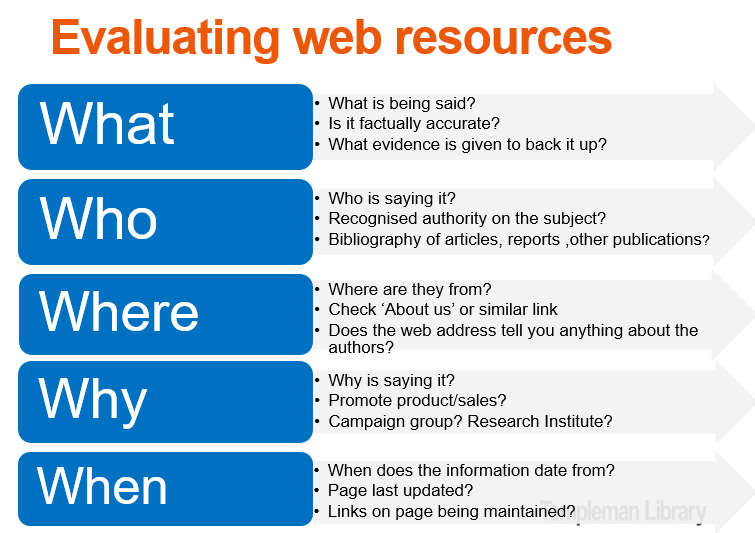Information from the web
Useful websites
As well as the resources that the library subscribes to there is a lot of freely available information available on the web. These might include key organisations and authorities in your area of study, preprint repositaries, resource banks and subject gateways . These may produce research, data and reports that are useful to your study or you may just want to follow for your own employability.
- Dictionary of Drugs: up to date and concise information on currently marketed drugs, those undergoing clinical trials, and pharmacological tools, this is a one-stop resource for the medicinal chemist.
- DrugWise – free online tool, promoting evidence-based information on drugs, alcohol and tobacco
- National Center for Biotechnology Information (NCBI) cross database search: search a large number of databases, including protein structures and sequences, genomic data, taxonomy and more, in a single search
- ChemWeb – free registration service for chemists, with a newsletter alerting services that you can sign up for
- BioImages – virtual field guide with 30,000 images of 3,000 UK species
- UniProt Knowledge Base-the mission of UniProt is to provide the scientific community with a comprehensive, high-quality and freely accessible resource of protein sequence and functional information
- Biorxiv – provides access to full text, open access research papers covering bioscience. It contains articles that have not yet been peer-reviewed / published
Professional organisations and societies
- American Cancer Society
- American Society for Cell Biology (ASCB)
- Biochemical Society
- British Society for Immunology
- Medical Research Council (MRC)
- Microbiology Society
- Royal Society of Biology
Research funding agencies
They often provide major overviews of topics on their websites. The two major research councils funding biology-related research are:
Major research charities
- British Heart Foundation
- Wellcome Trust
- The Association of Medical Research Charities (AMRC) has links to many research charities.
When looking at information of the internet it is important to ask critically questions about the websites you might be using. The table below details those questions to consider.

